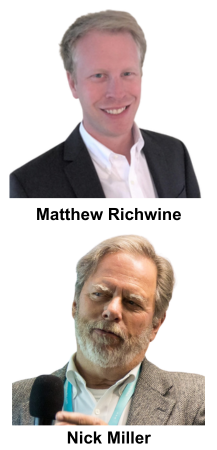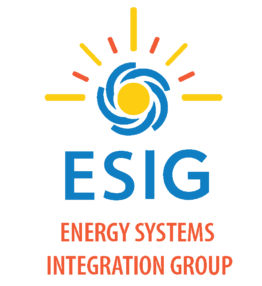
- This event has passed.
G-PST/ESIG Webinar: Moving Beyond SCR – Updating Our Stability Screening Methods
May 22, 2025 @ 4:00 pm - 5:00 pm EDT

Featured Speakers: Matthew Richwine, Founding Partner, Telos Energy and Nick Miller, Principal, HickoryLedge LLC
Webinar Abstract: Stability screening methods like short-circuit ratio (SCR) and its variants have been a mainstay of the industry for decades for their simplicity. As we move into higher penetrations of IBR with different performance characteristics, the SCR methods become an increasingly unreliable indicator of stability. On the other hand, time-domain simulations can have high accuracy, but are onerous to set up and run. This webinar shares work on the Dynamic Impedance Method that bridges the gap, addressing the shortfalls of SCR methods while retaining scale for huge bulk power system models with many thousands of resources and buses. The approach is much simpler, and faster to use than phasor domain and EMT simulations.
About the Speakers:
Matthew Richwine is a founding partner of Telos Energy and is a leader in power systems engineering, power electronic controls, and system stability. For over fifteen years, he has been designing, testing, and analyzing thermal and renewable power generation equipment and studying the stability of power systems ranging from tens of megawatts to tens of gigawatts. Prior to founding Telos Energy, Matthew worked for General Electric in its Energy Consulting department, most recently as the Senior Manager of the Renewables and Controls team. In that role, he led a team in the development of new control systems for power converters and transmission planning models for GE’s Renewables business.
Nick Miller is an internationally known power system engineer, with specialty in integration of wind and solar generation to bulk power systems. He consults and is currently conducting research on bulk grid stability for US ISOs and TOs. He spent 3/8 of a century with GE. He is an elected member of the US National Academy of Engineering, an IEEE Life Fellow, a NY P.E., and a Distinguished Member of CIGRE. He authored 20 US patents, has over 180 publications with over 8,000 citations and is the recipient of GE’s Edison Award, CIGRE’s Philip Sporn Award, the IEEE Ramakumar Renewable Energy Award, and is a Lifetime Member of ESIG.
Moderator: Alex Shattuck, Director of Grid Transformation
Registration Cost: FREE
Q&A Session: We will be using the Slido platform for Q&A. Please submit your questions and follow-along during the event at this link.

